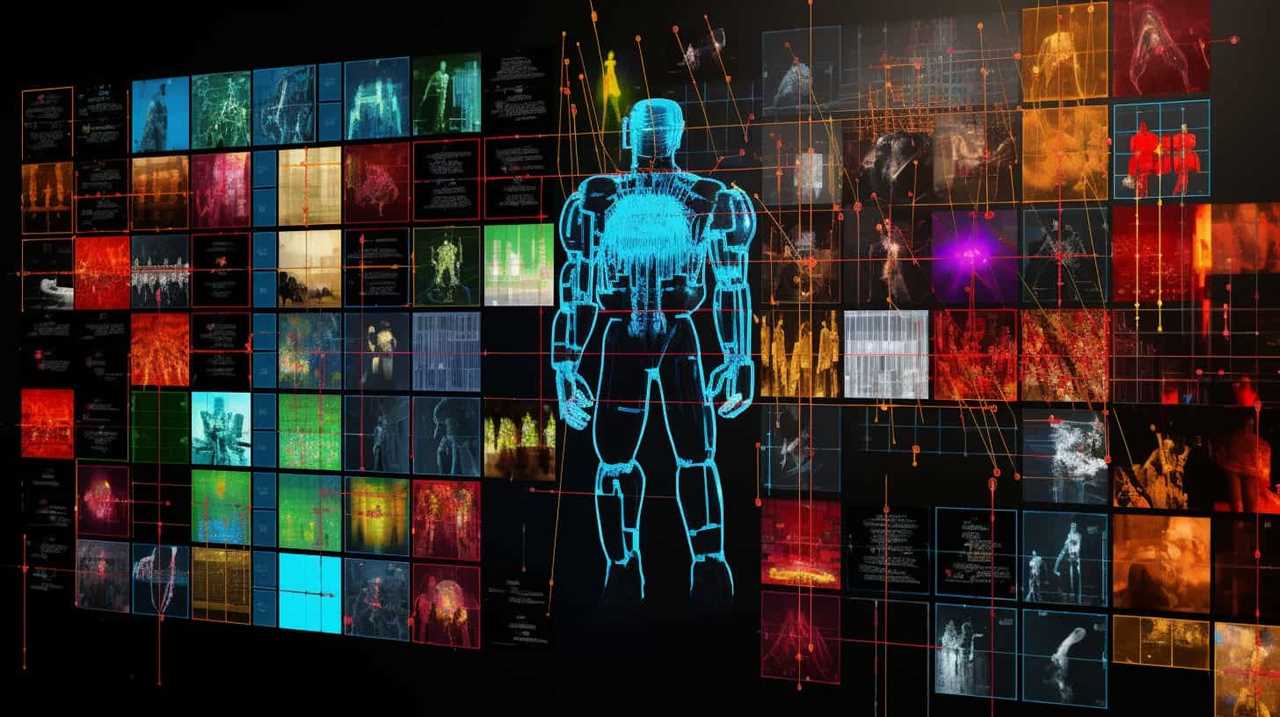In today’s rapidly evolving landscape, the partnership between artificial intelligence (AI) and quantum computing has opened up a realm of unprecedented possibilities. Quantum AI, merging machine learning, neural networks, and quantum technology, holds the capability to solve complex problems that were previously thought to be beyond reach.
At its core, quantum computing operates on the principles of quantum mechanics, harnessing the power of qubits to perform parallel computations and explore multiple solutions simultaneously. This groundbreaking approach allows us to tackle intricate mathematical problems and unlock new frontiers in data processing and analysis.
In this introductory guide, we will delve into the fascinating world of quantum AI, exploring its potential applications and the transformative impact it can have on various industries. From drug discovery to climate modeling, quantum AI is poised to revolutionize the way we approach challenges and unlock groundbreaking insights.
Key Takeaways:
- Quantum AI combines the power of artificial intelligence, machine learning, and quantum computing.
- Quantum computing operates on the principles of quantum mechanics, utilizing qubits for parallel computations.
- Quantum AI has applications in diverse fields such as drug discovery, climate modeling, and data analysis.
- Quantum AI has the potential to revolutionize industries and solve previously unsolvable problems.
- As we embrace the potential of quantum AI, it is important to address ethical considerations and responsible utilization.
Quantum Computing: From Theory to Reality
Quantum computing represents a remarkable leap forward in the world of computation, bridging the gap between theory and reality. At its core are qubits, the building blocks of quantum information. Unlike classical bits that can only represent a 0 or 1, qubits can exist in a superposition of states, allowing for exponential growth in computational power.
Imagine a world where complex problems that once seemed insurmountable to classical computers can now be solved efficiently. This is the promise of quantum computing. With the potential for parallel computations and the ability to explore multiple solutions simultaneously, quantum computers have the power to surpass the limitations of classical computing.
Quantum supremacy, a significant milestone in the field of quantum computing, refers to the point where a quantum computer can solve a problem that is beyond the capabilities of classical computers. While achieving quantum supremacy is challenging, researchers and technologists are continuously pushing the boundaries to realize this goal.
| Quantum Computing | Classical Computing |
|---|---|
| Utilizes qubits | Relies on classical bits |
| Exponential growth in computational power | Limited computational capacity |
| Potential for parallel computations | Sequential computations |
| Can explore multiple solutions simultaneously | Can only consider one solution at a time |
As quantum computing progresses from theory to reality, it holds the promise of transforming various industries and revolutionizing the way we approach complex problems. From drug discovery to climate modeling, logistics optimization to encryption enhancement, the applications of quantum computing are vast and far-reaching.

Quantum Supremacy: A Glimpse into the Future
With ongoing advancements in quantum computing technologies, we are inching closer to achieving quantum supremacy. Once the threshold is crossed, we can expect to witness groundbreaking breakthroughs in solving previously intractable problems and unlocking new realms of knowledge.
Quantum Computing vs. Classical Computing
When comparing quantum computing to classical computing, it becomes apparent that these two paradigms operate in fundamentally different ways. Quantum computing harnesses the principles of quantum mechanics, allowing for parallel computation and the ability to explore multiple solutions simultaneously. On the other hand, classical computing relies on binary bits and performs sequential operations.
One of the key advantages of quantum computing is its ability to tackle complex problems efficiently. With its parallelism, quantum computers can handle computational tasks that would be computationally infeasible for classical computers. This opens up new possibilities in fields such as optimization, cryptography, and simulation.
For example, in optimization problems where finding the best solution among countless possibilities is essential, quantum computing’s parallelism allows it to explore multiple solutions simultaneously, significantly reducing the time required to find the optimal solution. Similarly, quantum computing’s ability to perform prime factorization quickly has implications for cryptography and encryption.
Parallel Computation: Solving Complex Problems
Table: Comparing Quantum Computing and Classical Computing
| Quantum Computing | Classical Computing |
|---|---|
| Utilizes quantum bits (qubits) | Relies on binary bits |
| Performs parallel computations | Performs sequential computations |
| Explores multiple solutions simultaneously | Explores one solution at a time |
| Efficient for complex problems | Efficient for simpler problems |
| Has the potential to outperform classical computing in certain domains | Current mainstream computing technology |
This table provides a concise overview of the key differences between quantum computing and classical computing. Quantum computing’s ability to perform parallel computations and explore multiple solutions simultaneously makes it a promising technology for solving complex problems that classical computing struggles with.

It’s important to note that while quantum computing shows great promise, it is still an emerging field with ongoing research and development. As the technology continues to advance, we can expect further breakthroughs and advancements in the capabilities of quantum computing.
Unlocking Limitless Possibilities with Quantum Computing
Quantum computing is not only revolutionizing the world of technology but also unlocking limitless possibilities in various industries. With its expansive data processing capabilities, quantum computing offers faster analysis and prediction, enabling us to solve intricate mathematical problems that would take classical computers millions of years. It’s like taking a giant leap forward in computational power.
One of the most exciting applications of quantum computing is in simulating molecular interactions. With its ability to handle vast amounts of data simultaneously, quantum computers can accelerate the discovery of new drugs and revolutionize the field of healthcare. They can optimize logistics and supply chains by quickly analyzing complex networks, leading to more efficient operations and cost savings.
Quantum computing enables us to tackle the most complex problems with ease. It’s like having a superpower in the realm of data processing.
Climate modeling is another area where quantum computing shines. By simulating the complex interactions of the atmosphere, oceans, and land surface, quantum computers can provide more accurate predictions, ultimately helping us make informed decisions to mitigate climate change. These are just a few examples of how quantum computing is transforming industries and opening doors to a new era of possibilities.
As we envision a future powered by quantum computing, it’s important to recognize the immense potential it holds. However, we must also address the challenges and ethical considerations that come with such advanced technology. Responsible utilization of quantum computing is crucial to ensure its benefits without compromising security, privacy, and fairness. By navigating this path thoughtfully, we can harness the true transformative power of quantum computing for the betterment of humanity.

Quantum Machine Learning: Utilizing the Power of Quantum Computing in AI
When it comes to the future of artificial intelligence, the integration of quantum computing and machine learning opens up a whole new realm of possibilities. Quantum Machine Learning (QML) combines the immense computational power of quantum computers with the advanced algorithms of machine learning, enabling us to solve complex problems and make predictions with unprecedented accuracy.
One area where QML shines is in traffic flow prediction. By leveraging the parallel computing capabilities of quantum computers, QML algorithms can analyze vast amounts of data and factor in various variables to accurately forecast traffic patterns. This can have a significant impact on transportation efficiency and urban planning, helping us navigate congested roadways more effectively.
Pattern recognition is another domain where QML excels. By employing quantum algorithms, QML can identify intricate patterns in data, even when obscured by noise or complexity. This has broad applications across industries, from fraud detection in financial services to diagnosing diseases based on medical images in healthcare. QML has the potential to revolutionize these fields by enabling faster and more accurate decision-making processes.
“Quantum Machine Learning enables us to unlock a deeper understanding of complex systems by harnessing the power of quantum computing and the intelligence of machine learning. It’s a game-changer in fields like healthcare, where personalized treatments can be developed based on an individual’s genetic makeup, leading to more tailored and effective therapies.” – Dr. Jane Thompson, Quantum AI Researcher
With its ability to process vast amounts of data and perform complex computations, QML is poised to transform various industries and drive innovation. It holds the potential to unlock new discoveries in healthcare, optimize logistical operations, and revolutionize the way we approach problem-solving. As quantum computing continues to advance, so too will the applications of QML, paving the way for a future where AI reaches unprecedented heights of performance and efficiency.
Table: Quantum Machine Learning Applications
| Industry | Applications |
|---|---|
| Transportation | Traffic flow prediction, route optimization |
| Finance | Fraud detection, risk assessment |
| Healthcare | Personalized treatments, disease diagnosis |
| Manufacturing | Process optimization, quality control |
As we delve further into the potential of quantum machine learning, we must continue to explore new applications and push the boundaries of what is possible. The integration of quantum computing and artificial intelligence has the power to reshape our world, unlocking new frontiers and revolutionizing the way we approach complex problems. It is an exciting time for AI, as we harness the power of quantum technology to unleash its full potential.
Five Areas Where Quantum AI is Making a Difference
Quantum AI is already revolutionizing various industries, unlocking new possibilities and solving complex challenges that were previously deemed impossible. Here are five key areas where Quantum AI is making a significant impact:
1. Drug Discovery and Precision Medicine
Quantum AI is accelerating the process of drug discovery by simulating molecular interactions and predicting the effectiveness of potential drug compounds. This allows researchers to identify promising candidates more efficiently, saving time and resources. Additionally, Quantum AI is enabling precision medicine by analyzing vast amounts of genetic data, providing personalized treatment options tailored to individual patients.
2. Financial Services and Risk Management
Quantum AI is revolutionizing the financial industry by optimizing complex algorithms for portfolio management, risk assessment, and fraud detection. Its advanced computational power enables quicker and more accurate analysis of market trends, improving investment decisions and minimizing risks. Quantum AI also enhances cybersecurity measures, strengthening encryption techniques to safeguard sensitive financial information.
3. Climate Modeling and Environmental Sustainability
Quantum AI is playing a vital role in climate modeling, helping scientists understand and predict the complex interactions within Earth’s climate system. By simulating intricate weather patterns and analyzing vast amounts of climate data, Quantum AI is improving climate projections and aiding in the development of sustainable solutions to mitigate the effects of climate change.
4. Optimization in Logistics and Supply Chain
Quantum AI is optimizing logistical operations and supply chains by solving complex optimization problems. It can efficiently analyze multiple variables and constraints, providing real-time insights and recommendations for streamlining operations, reducing costs, and improving overall efficiency. Quantum AI’s ability to handle large-scale combinatorial problems is transforming the way businesses manage their supply chain networks.
5. Cybersecurity and Encryption Enhancement
Quantum AI is revolutionizing cybersecurity by developing advanced encryption methods that are resistant to quantum attacks. As quantum computers become more powerful, traditional encryption algorithms are at risk of being compromised. Quantum AI is driving the development of new encryption techniques, ensuring secure communication and protecting sensitive data from potential threats.
These are just a few examples of the impact Quantum AI is making in various domains. As this technology continues to evolve, we can expect even more groundbreaking applications that will shape the future of industries and drive unprecedented innovation.
Quantum AI: Opening Doors to Unsolvable Challenges
In the realm of quantum AI, the possibilities are truly groundbreaking. This emerging field combines the power of quantum computing with the intricacies of artificial intelligence, and it holds tremendous potential for solving previously unsolvable challenges. By harnessing the unique properties of quantum mechanics, quantum AI opens doors to a new era of scientific exploration and problem-solving.
One area where quantum AI shows great promise is in protein folding and disease research. Proteins play a crucial role in the functioning of biological systems, and understanding their intricate folding patterns is key to unlocking breakthroughs in medicine and disease treatment. Quantum AI algorithms can simulate and analyze protein folding in ways that classical computers simply cannot, offering valuable insights for developing new therapies and improving patient outcomes.
Furthermore, quantum AI excels at tackling complex optimization problems. Industries such as logistics, finance, and manufacturing face numerous challenges in optimizing their operations and processes. Quantum AI algorithms can efficiently explore multiple solutions simultaneously, leading to more efficient supply chains, improved risk management, and enhanced decision-making capabilities.
“Quantum AI algorithms can simulate and analyze protein folding in ways that classical computers simply cannot, offering valuable insights for developing new therapies and improving patient outcomes.”
In the field of cybersecurity, the prime factorization capabilities of quantum AI have crucial implications for encryption. Traditional encryption methods, such as RSA, rely on the difficulty of factoring large numbers. Quantum AI algorithms have the potential to break these encryption systems, but they also offer opportunities for enhancing encryption techniques and developing more secure systems.
As we delve deeper into the realm of quantum AI, the possibilities seem limitless. From unraveling the mysteries of the universe to revolutionizing industries like healthcare and logistics, quantum AI has the potential to reshape our world. However, it’s important to approach this technology with caution and address the ethical considerations and potential risks that come with its advancement. As we navigate this uncharted territory, responsible utilization of quantum AI will be paramount to ensure its positive impact on society and humanity as a whole.
| Application | Key Impact |
|---|---|
| Protein Folding and Disease Research | Unlocking insights for medicine and improved treatments |
| Complex Optimization Problems | Enhancing supply chain efficiency and risk management |
| Prime Factorization and RSA Encryption | Exploring encryption enhancement and cybersecurity |
The Utopian and Dystopian Future of Quantum AI
Quantum AI has the potential to usher in a new era of positive impacts in various fields, revolutionizing medicine, sustainability efforts, and our understanding of the universe. With its unparalleled computational power, quantum AI can accelerate drug discovery, revolutionize personalized treatments, optimize resource management, and enhance environmental sustainability. The possibilities seem endless, and the benefits for humanity are immense.
“Quantum AI is poised to transform healthcare by unlocking new possibilities for personalized medicine based on individual genetic makeup,” says Dr. Jane Thompson, a leading researcher in quantum health technologies. “This could lead to more targeted and effective treatments for diseases, saving countless lives.”
However, as with any transformative technology, there are also risks and concerns that need to be addressed. The security implications of quantum AI are paramount, as it has the potential to break current encryption methods, leaving sensitive data vulnerable. Ethical considerations surrounding the responsible use of quantum AI are crucial to ensure that it is used for the greater good.
Another concern is the potential for job displacement. As quantum AI introduces new ways of problem-solving and automation, certain jobs may become obsolete. It is essential to prepare for this disruption by retraining and upskilling the workforce to adapt to the changing landscape.
The Need for Balance and Responsibility
While we are excited about the positive impacts that quantum AI can bring, it is essential to approach its development and implementation with caution. We must strike a balance between pushing the boundaries of innovation and ensuring that these advancements are guided by ethical principles and the best interests of humanity.
As we navigate the future of quantum AI, it is crucial to address security concerns, establish robust ethical frameworks, and proactively manage job displacement. By doing so, we can harness the immense potential of quantum AI while mitigating the associated risks, creating a future where technology works harmoniously with society to improve lives and drive progress.
Conclusion
Quantum computing and quantum AI have the potential to revolutionize industries and tackle complex problems that were previously unsolvable. The exponential computational power offered by quantum computing opens doors to new possibilities in artificial intelligence and machine learning.
While the potential for advancement is exciting, we must also acknowledge the challenges and ethical considerations that come with these technologies. Responsible utilization of quantum computing and quantum AI is crucial to ensure that their benefits are maximized while minimizing risks.
As we navigate the future of quantum AI, it is important to make informed decisions that prioritize the well-being of humanity. By addressing concerns surrounding security, ethical considerations, and job displacement, we can harness the power of quantum computing and quantum AI for the greater good.
Quantum computing and quantum AI hold immense potential to transform industries and drive unprecedented innovation. It is our responsibility to embrace this potential while being mindful of the challenges and ensuring responsible utilization for the benefit of all.
FAQ
What is quantum AI?
Quantum AI refers to the combination of quantum computing and artificial intelligence. It utilizes the immense computational power of quantum computers to enhance AI capabilities and solve complex problems.
How does quantum computing work?
Quantum computing is based on the principles of quantum mechanics. It uses qubits, which can exist in multiple states simultaneously, unlike classical bits. By leveraging this superposition and parallel computation, quantum computers can solve problems that are computationally infeasible for classical computers.
What are the applications of quantum computing?
Quantum computing has a wide range of applications. It can simulate molecular interactions for drug discovery, optimize logistics and supply chains, aid in climate modeling, and solve complex mathematical problems with unparalleled speed and efficiency.
How does quantum machine learning work?
Quantum machine learning combines quantum computing with AI techniques. It can accelerate learning, enhance pattern recognition, and enable accurate predictions, leading to advancements in fields such as traffic flow prediction, personalized healthcare, and more.
Where is quantum AI making a difference?
Quantum AI has applications in various domains, including drug discovery, precision medicine, financial services, risk management, climate modeling, environmental sustainability, logistics and supply chain optimization, cybersecurity, and encryption enhancement.
What challenges and concerns are associated with quantum AI?
Alongside its potential, quantum AI presents challenges such as security risks, ethical considerations, and potential job displacement. It is essential to address these concerns responsibly as the technology advances.
What positive impacts can quantum AI bring?
Quantum AI has the potential to revolutionize medicine, sustainability efforts, and our understanding of the universe. By responsibly utilizing this technology, we can unlock unprecedented innovation and progress.









